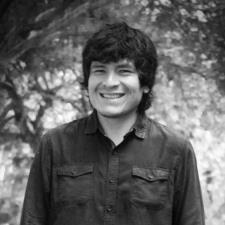Brian Z. answered • 10/14/19
a) compute S(1):
S(1)=ln(1*(1+2)/(1+1)2)= ln(3/4)
compute S(2):
S(2)=S(1)+ln(2*(2+2)/(2+1)2)= ln(3/4)+ln(8/9)=ln(3*8/4*9)=ln(2/3)
compute S(3):
S(3)=S(2)+ln(3*(3+2)/(3+1)2)=ln(2/3)+ln(15/16)=ln(10/16)=ln(5/8)
b) find a general formula for the partial sum S(n):
for every integer k≥1 U(k)= ln((k(k+2))/((k+1)^2)) =ln(k) + ln(k+2) -2*ln(k+1) according to the logarithm properties:
This term is equal
for k=1 :U(1)=ln(1) + ln(3) - 2*ln(2) =>S(1)=ln(1)-ln(2)-ln(2)-ln(3)
for k=2 :U(2)= ln(2) + ln(4) - 2*ln(3) S(2)=U(1)+U(2) =>S(2)=ln(1)-ln(2)-ln(3)+ln(4)
for k=3 :U(3)= ln(3) + ln(5) - 2*ln(4) S(3)=U(1)+U(2)+U(3) =>S(3)=ln(1)-ln(2)-ln(4)+ln(5)
.... .....
.... ......
for every integer n:U(n)= ln(n) + ln(n+2) - 2*ln(n+1) and => S(n)=ln(1)-ln(2)-ln(n+1)+ln(n+2)
S(n)=ln(1/2)+ln((n+2)/(n+1)) for every n≥1
This is a "magic result" that need mathematical proof to be logically acceptable, to do so, we will use the induction proof :
Verify that the formula is valid for n0=1 : S(1)=ln(1/2)+ln(3/2)=ln(3/4) which is valid according to a) answer
we suppose that the formula is true for n and we deduct that is true for n+1:
S(n+1)=S(n)+ ln(((n+1)(n+3))/((n+2)2)) according to the definition of the serie
replacing S(n) by it's value in the formula as supposed true
=ln(1/2)+ln((n+2)/(n+1)) + ln(((n+1)(n+3))/((n+2)2))
=ln(1/2)+ln((n+2)(n+1)(n+3) / (n+1)(n+2)2) #eliminate (n+2) and (n+1)
=ln(1/2) + ln((n+3) / (n+2)) #which we expect for S(n+1)
Proved S(n)=ln(1/2)+ln((n+2)/(n+1)) for every n≥1
c) argue that the series converges and compute its sum
according to the formula S converge if and only if ln((n+2)/(n+1)) has a finite limit
we know that
1) lim∞(n+2)/(n+1)=1
and:
2) the function x=>ln(x) is continuous at the point 1
1) and 2) => ln((n+2)/(n+1)) converge and its limit is equal ln(lim∞(n+2)/(n+1)=1 )=0
finally we can say that S(n) converge and its limit is equal to ln(1/2)
I hope that it helps you
I'm ready to answer to your question or feedback...Good Luck




